Recently, I took a moment to be vulnerable with folks and talk about my writer’s block and how it was caused (at least initially) by Death Stranding. I was really heartened by the response and someone suggested that I just essentially publish my notes because “anything can be a piece”. I liked that idea a lot, so today I bring you my notes and thoughts on Death Stranding and the nature of fun in video games. This isn’t quite my raw notes copied directly from the notepad file – I’ve added some explainers and context, but it’s far from what I imagined, but it’s 3,600 words I never thought I’d find the power to write.
I really wanted to develop this into a proper article or something because it’s a fascinating topic. Maybe I’ll do some additional work beyond this and do so separately but for now, this topic is bound to Death Stranding in my mind, because it is the game that made me think about it, and it’s hard for me to extricate the two things. Plus, I’m not beholden to anyone but myself; nobody is asking for this, and I should learn to be more intrinsically motivated.
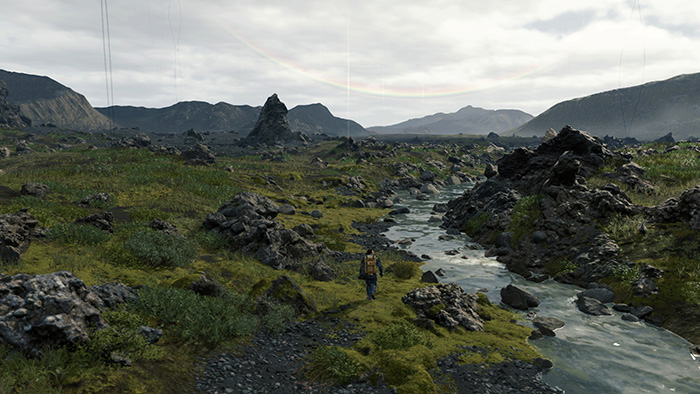
Warning ahead for some Death Stranding spoilers and extremely long paragraphs.
I’m not certain at what point in the game I started making these notes or what it was that prompted me to open a notepad file with the question “Is Death Stranding fun??” I don’t know if I’ve ever kept playing a game where I wasn’t sure I was having fun, until Death Stranding. I have relatively little patience with games that “just take a few hours to get going” – y’know what else took just a few hours? The entire story of Firewatch, so to me it’s no excuse and my time is more valuable than giving something too long to get going. I try to reflect on myself as a media consumer pretty frequently – I believe it’s very important to understand our own points of view, our biases, and our preferences, particularly if creating media to share about something. For instance, while I heartily enjoy games with gunplay (Borderlands 2 and Fallout: New Vegas are two of my favourite games of all time) I know I tend to strongly dislike games with a military theme, which I why I’ve never played any of the Call of Duty games and wouldn’t ever sign up to cover them on stream since I wouldn’t be able to give them a fair look. All this to say really that there must have been something about Death Stranding for me to have kept going with it after writing the words “is Death Stranding fun??”, and doing that sort of introspection is important.
To be fair, the second note I made was “it’s compelling” which I think would be hard to disagree with (for me – you, dear reader, may not find package delivery so interesting). I played the game through once and my in-game time was over 95 hours. Notoriously long cutscenes aside, I clearly couldn’t put it down. I also can’t deny that I am keeping a close eye on the announced director’s cut.
Next in my notes is this intriguing snippet: “the core gameplay loop of ‘go from X to Y carrying Z’ is very simple, the story and setting are very complex.” I think this simple gameplay loop is pretty integral to the success of the game; carry a parcel to someone, and if you do it well they are happy and you get a nice sound effect and some likes and it’s very rewarding. There’s also an infinite number of side missions, so if you are internally competitive like me, you can very easily go “hmm, pretty sure I could make that journey more quickly if I did it differently or got this upgrade” and try again. More nice sound effects, happy NPCs, and likes. I was definitely compelled by this task-reward-repeat system and found it rewarding. I’m still not sure if that’s the same as having fun though.
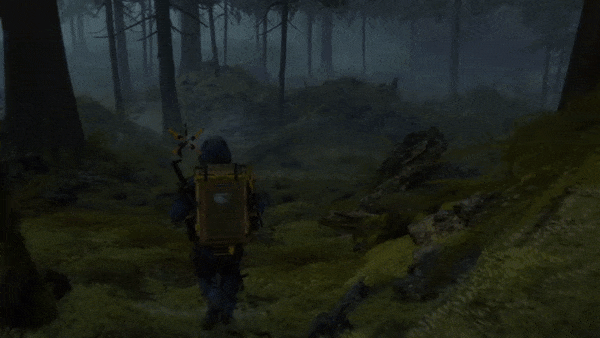
My next musing is one that I think cuts through to a lot of the frustration I felt with the game; “Does the simple, clear, and rewarding gameplay loop support the extremely complex and obfuscated story? It definitely supports the subplot of porters who are addicted to doing deliveries but is that SO obvious that it comes back around to not working? The allegory is so heavy-handed.” I never really felt like I knew what was going on with the main story (some of this is deliberate on the game’s part and some is just how Hideo Kojima tells his stories) – even after watching a couple of explanatory videos. This game essentially has a movie embedded within it, in the form of its cutscenes. I didn’t time it myself but looking up some cutscene compilations on YouTube suggest at least six hours of cutscenes. A short Netflix series or a trilogy of films! But something about the sharp difference between the main story that was deep and complex and thematic and touched on subjects like loneliness, how easy it is to go too far in the name of love, and how more than just our lives and bodies are destroyed when we die; and the subplot of crazed delivery people who can only get any joy in life from the “likes” that drive the delivery system. Yeah, I get it, you think people are addicted to social media. Even some of the “good” NPCs who run supply depots etc. talk about how they have to rely on “smart drugs” like oxytocin because it’s too dangerous to go out and do their own deliveries. I could also talk at some length about the character names and how on-the-nose they are. “Fragile”, “Mama”, “Deadman”, “Heartman”. There’s literally a dude who goes by Die-Hardman whose real name is John McClane – did you hear Kojima is a movie fan? I genuinely felt the names pulling me out of the story. This was always doubled down on by the characters falling over themselves to explain their names. The fourth wall was paper thin and I could tell when the characters were arguing. (Incidentally – please go watch this video about Kojima’s naming by Brian David Gilbert. If you work out your Kojima name, let me know what it is in the comments.)
This is the first Hideo Kojima game I have played as an adult – I played the first Metal Gear Solid game on the PlayStation but I was 8 years old when it was released I and don’t think I was really thinking critically about media yet – but I am lead to believe several of these points are just him being “an auteur” and “a visionary”. I think people are entitled to love the things they love, but personally, I think he could do with an editor, someone who can say “are you really going to call the dude who is linked to a machine that messes with his heart “Heartman”? Come on, let’s get a coffee and think of something a little less fucking ridiculous.”
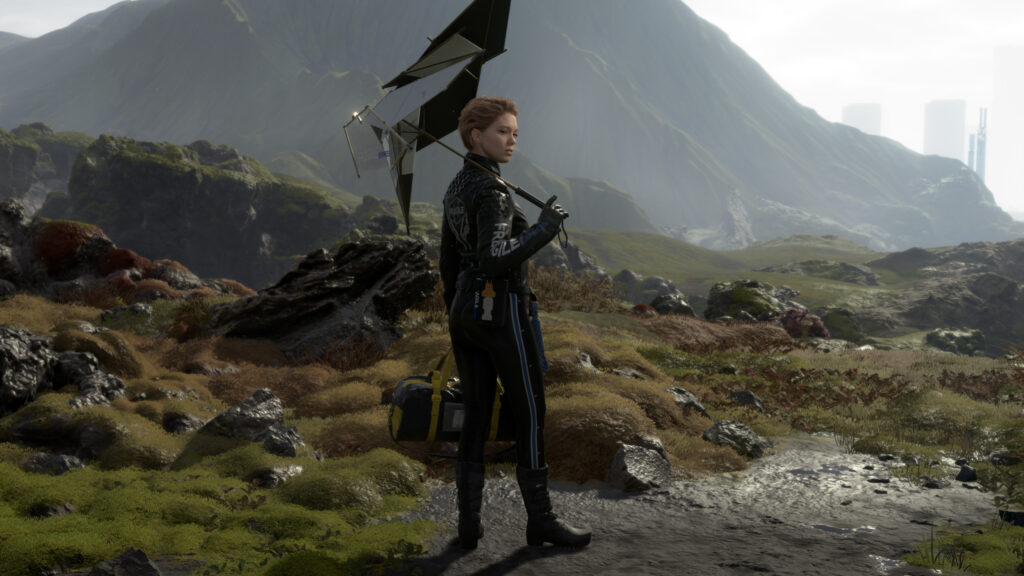
There was a lot that frustrated me about the game that really had nothing to do with the gameplay itself. It felt like every time I let myself get immersed, buy into a little bit of the story, sympathise for a character; any time I was reaching out to connect, the game just slapped my hand away somehow. The product placement was absolutely egregious and extremely intrusive. And yet…
I was utterly compelled by and invested in the story. I want to make a very clear distinction here though – was I enjoying the story coming together over the game, seeing pieces fall into place, building up a picture and fleshing out the world? No. I don’t think the game did any of that especially well, and in some cases, I think it went out of the way to undermine its own world-building efforts both blatantly and surreptitiously. For instance, the Monster Energy Drink product placement. It wound me up to absolutely no end. I had an awesome futuristic canteen that could collect tainted rainwater, but did it turn it into an advanced, isotonic, smartly hydrating science water? No, it turned it into Monster Energy. And on the other, more subtle side; the story is largely about forging important connections between isolated knots of humanity, left stranded after a cataclysmic disaster laid waste to much of the world. You play as Sam (like Uncle Sam, working for America! Geddit?) Porter (you literally are a porter) Bridges (a bridge is another word for a connection!) and you are extremely special. People fall over themselves to tell you how and why you are the only man for the job, how literally no other person could accomplish what you are accomplishing. One of my notes is “there are SO MANY sources telling you how amazing and vital and important you are. Is this getting to a point or what?” I much prefer stories that emphasise the collective importance of all people and define community and connection in that way, than those that put one person on a pedestal and idolise them and claim somehow their magical presence is the cause of this architecture of connection. It’s almost as though the characters in the game know that a) they are in a game, and b) they are addressing the player through the protagonist. “Only you could do this because you’re the only player character, wink wink.” I really think the thing that exemplifies this whole thing is that the main character has aphenphosmphobia – fear of being touched – but the game is all about making connections and by the end of it he gives another character a hug, woo. But when meeting fans, Hideo Kojima has a strict rule – he does not like shaking hands with or touching fans. (source in this Polygon article)
I kept hoping that the next cutscene or the next email or next conversation with an NPC would be the missing piece for me. I wanted to go from a state of anticipatory dread, desperate for someone to give me a nice glass of water and some toast instead of a caviar milkshake. But no. Even the characters I liked I kinda hated. Perhaps my favourite character, named “Fragile” (thanks Kojima) pronounced her own name in about four different ways, sometimes going less than a single sentence before changing it. Again, this is somewhere that people will argue that Kojima had his hand in every single thing, there were no mistakes, no missed details, and the varied pronunciations were intended to convey some meaning. Well, I’m sorry (not sorry) but while for some people this is “attention to detail”, for me this is “over-engineered” and “micromanaged.” (Aside from this I think Léa Seydoux does a fantastic job and she’s by far the character I most connected to. One of my final notes is “Fragile deserved better.”). I wanted the game to bring me into the story, but (and again, maybe this is all part of Kojima’s grand plan) both the player and the player character are kept at arm’s length. Nobody tells Sam what’s really going on, and they don’t care a jot if the player can’t work it out. Now, I finished the game, I made notes, I watched the 6+ hours of cutscenes with rapt attention. I also watched explanatory videos on YouTube to help sort my thoughts, check whether I was right, and in some cases, delve deeper where I felt like I was missing something. I even watched this entire seven-hour Death Stranding critique video. I really felt like by the end of it, I understood what was happening, but when it came to trying to explain it or summarise it, or even vaguely discuss it… I couldn’t. It felt like someone had replaced the plot of the game in my head with soup and glue and streamers. It’s really hard to internalise a 50-hour game plot when you’re just not really clicking with it as you go. So, I never reached the point of looking forward to the next cutscene or being excited about the next plot development, because it was all nonsensical and so overwrought and contrived. It was like a caricature of a game plot. I also want to establish for the record that I’m not saying “Death Stranding’s plot was bad because I didn’t understand it and because I don’t appreciate Kojima’s vision.” You can understand things and still believe they make not a lick of sense.
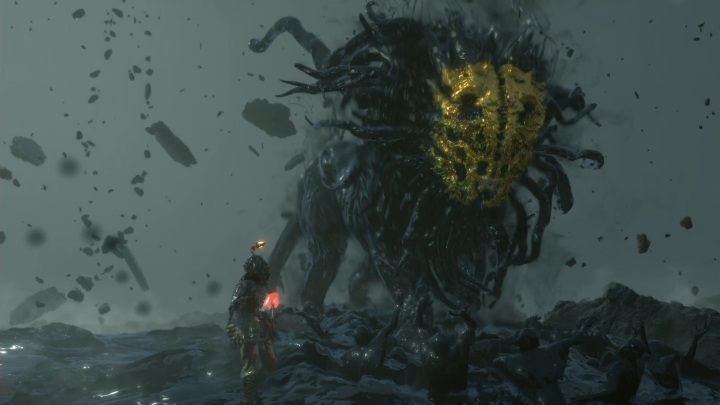
Another thing that rankled me (how did I play this game for nearly 100 hours??) was the completely illogical divide between things that were forced to be realistic and things that were absolutely not at all. Again, a preface – I know video games, especially post-apocalyptic sci-fi tales, can’t be realistic because they are telling unreal stories. But normally the realism and unrealism are meted out across a piece of media in a consistent way. Why bother having photorealistic character faces when you can’t make Norman Reedus’s hair look wet when he gets in the shower? Why force the player to have to direct the character to pee or take a dump when you’re not going to animate another character’s weirdly rubber looking jacket? Why go to the trouble of animating the effects of Timefall on plants on the ground (honestly this was a visual triumph, a constant reminder of the cataclysm that you’re striving to recover from, plants growing and withering away into nothingness in seconds) when you’re going to leave some rocks looking like they came from a PS1 game? In some instances, the game works very hard to create an atmosphere of tension and stress and unease, and it does it very well… until you get a pop-up saying the enemy you just dispatched gave you a “like”. Infuriating. In the game’s climactic, cinematic, “it’s all been leading up to this” ending, the UI suddenly grows a fighting game style pair of health bars, complete with little portraits and names and I thought I was going to lose my mind it was so offbeat.
I could go on and on listing things that infuriated me but I won’t. I just want to wonder – does a game have to be fun to be good? Does it have to be good to be fun? Does any of it matter when you played it for 100 hours anyway? Let’s take movies – there are so many movies that really aren’t very fun at all but are considered to be good, or even exceptional (Schindler’s List is the example that springs to mind immediately). Lots of people consider pop music to be fun but not good (as much as I would disagree with this sentiment, it is a common one) even though it may be popular. Where do games land on the fun vs. good axis?
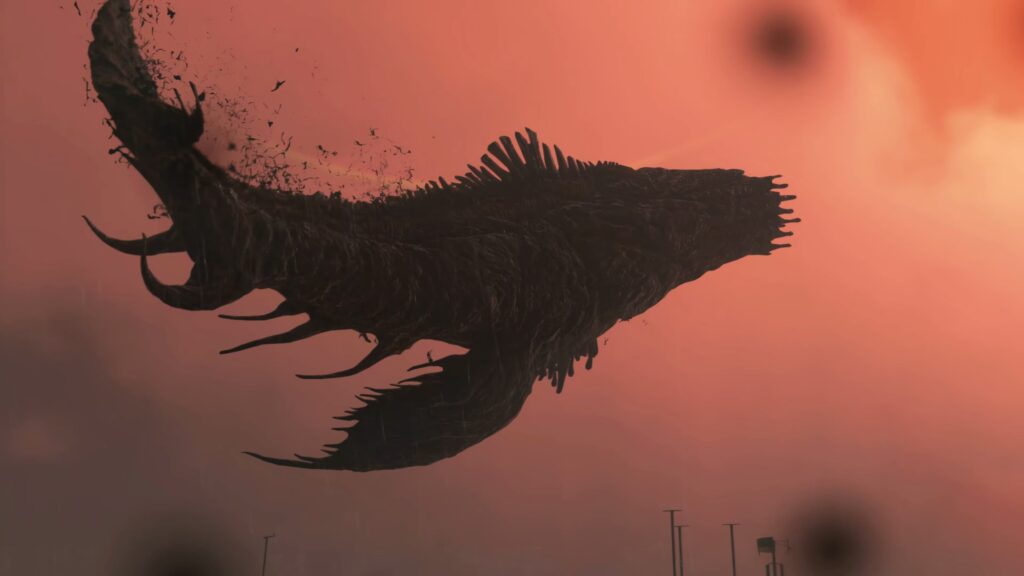
Is Death Stranding a fun game? I asked on Twitter what people think makes a game fun and got some interesting responses but few enough that it seemed to come down to individual tastes – there weren’t enough answers that I could look at them and get a “general sense” of the answer. One astute responder identified their own distinction between “good” and “fun”, which was nice and made me feel a little less adrift for having this thought in the first place. The overall response on Twitter did make me think the question should really be “did you/I find Death Stranding fun?” to which I’d probably have to answer yes, but begrudgingly. The game constantly tried to get in the way of my fun. I really did enjoy all the parts where I was playing the game. Some of it was undeniably beautiful. There were some incredible spectacles and set pieces – the boss fights especially were just fantastic in all senses of the word. I’m a complete sucker for an apocalypse story, particularly original ones. There are genuine in-game consequences for being too trigger happy and killing people, not some lacklustre, disinterested karma score. Being non-lethal is intrinsic to the game, but it does let you go and fuck shit up with a shotgun if you like, you just have to deal with the mess. The cast is excellent. Some of the choices you make in a gameplay sense have short term consequences but will never lock you out of story arcs – penalties are limited to, for example, trying to carry too much, breaking some cargo, and getting a lower rating on that delivery. They are still choices for the player though. There genuinely seemed to be more than one way to play. You could be slow and methodical like me, scrounging up resources and pouring time into the infrastructure, or you could do the minimum and just get from A to B without thinking about the return trip. The soundtrack is incredibly good – there were some moments where, with no warning, the camera would pan out and you’d get a cinematic view of your journey with a song playing just at that moment and it felt extremely special. After the story concluded I spent more time in the sandbox of the world, trekking around, delivering vintage watches and medicine and ceramics.
Is Death Stranding a good game? I’d be very hard-pressed to say it was. I didn’t raise any new questions. I never felt challenged either as a gamer or as a person. It didn’t invite me to examine my biases and while I strongly believe in connectedness and the value of people, I really do think the game was sloppy and so heavy-handed in its allegory and symbolism that I couldn’t connect with the mission that fundamentally, I believed in. There was an antagonist in the game doing some flagrantly heinous stuff, and none of the characters ever wonder why. Nobody asks each other or themselves what he hopes to achieve, and I believe that’s because ultimately as a creator Kojima knew that it didn’t actually matter. That antagonist is a pawn and has motivations that are entirely irrelevant, but you don’t actually find that out until late in the game. The lack of exploration of this made him feel extremely inconsequential though – the dude the game presents as the main villain for like, 75% of the time is left feeling like a footnote in his own grand scheme.
I don’t have a grand conclusion to this piece. As I said above, it was an underdeveloped collection of notes from a text file that I’ve ruminated on as I’ve typed here. The closest I can get is “Death Stranding was not a good game, but the 95 hours I spent playing it were mostly enjoyable when the game got out of its own way.” I would really love to hear your thoughts on this, folks! Did you play Death Stranding and think it was fun, good, bad, boring, life-changing, all or none of the above? Did you decide not to play it? Did you determine your Kojima name? Let me know about it in the comments.
For your amusement, here are some notes I made that didn’t make it into more fleshed out points (these are more spoiler-y than the rest of this post and reference some reveals/story elements.
- Lockne and Mama – what the actual fuck?
- the cutscene at the end of episode 6… WHAT
- Fossil beach – what was that bit in the Bill Bryson book about sea creature shells in the mountains? Look this up. Cretaceous-Paleogene? Can we tangent into pre-history and the fossil record??
- The menu UI/UX is really, truly terrible.
- What’s up with Higgs and all the licking??
- What the HELL is up with the fighting game scene??
- What’s with the scene where the whole gang is back together?
- I always struggle to care about villains whose motivations are “someone wronged me so now I want to destroy the world”.
- it’s really hard to get to grips with the timeline. Lockne says most people these days wouldn’t know what NASA was but her and Mama’s parents worked for them. so it’s only 1-2 generations gone, which doesn’t seem like long enough for something like NASA to leave America’s cultural identity.
- is BB Sam????!!!?
- Why does Cliff call his baby BB? Surely it had a name that he and his wife had planned on or that he dreamed of??
- For how much Sam cares about that photo, he sure drops it. A lot.
- Why are we sending Sam to rescue Amelie when she lives on the Beach? If she doesn’t have a “body” what exactly are we rescuing? Does she even exist, nobody seems to have met her.
- Where are the animals?? There are some in the intro, then none.
- In the intro, where Fragile is stood in the road and causes Sam to crash, why isn’t he furious with her??
- Has Kojima not heard of “show don’t tell?” Die-Hardman literally tells you the president is your mother…. why does Sam need to be told this??
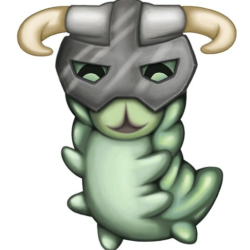

One reply on “Is Death Stranding a Fun Game?”
Great read. Mysterious TV shows, like Lost etc, love to spoon feed out a little of the hidden meaning a bit at a time, I wonder if that’s part of what kept you coming back for more?